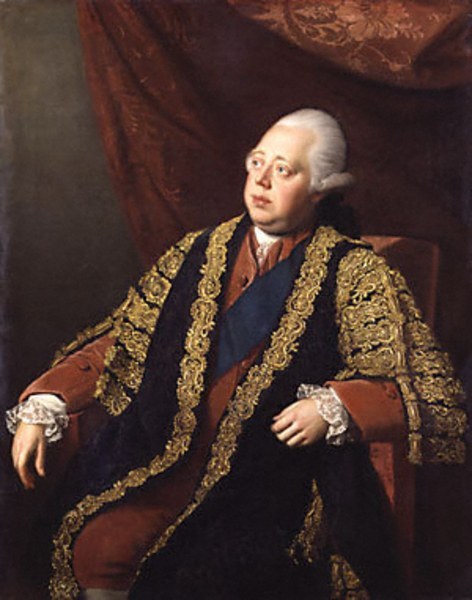On This Day in History -
March 20, 1782
The Anti-American British government falls
On this day in history, March 20, 1782, the Anti-American British government falls with the resignation of Prime Minister Frederick North. When General Lord Charles Cornwallis surrendered his army to George Washington at Yorktown, Virginia, the desire to bring the war to an end in England reached a fever pitch.
Debates raged in Parliament through January and February and finally, on February 27, the House of Commons passed a vote to end the war. On March 5, Parliament gives King George III the authority to negotiate peace with the Americans. Prime Minister North, however, is unpopular and the opposition tries to pass through several votes of no confidence in order to oust him.

Lord North had been Prime Minister since 1770 and was in charge of the British government during the entire American Revolution. The war had gone badly for England nearly from the beginning. They were never able to consolidate control beyond the major cities that were captured.
North had tried to resign several times during the war, thinking himself unable to handle a war, including right after the Battles of Lexington and Concord and after the defeat of General Burgoyne at Saratoga and the entrance of France in to the war. Each time, however, King George refused to accept his resignation and asked North to stay on.
With the defeat of Cornwallis, North again handed in his resignation and again, the King refused to accept it. This time, however, Parliament had had enough of war and momentum was swinging against North. After the vote to end the war on the 27th, a vote of no confidence was held which North narrowly survived. Only a few days later, however, another vote was held, which he failed.
On March 20, Parliament was scheduled to hold debates on North. North knew he was about to be sacked and before anyone could him further, he stood up to be recognized in the chamber. North publicly resigned, the first Prime Minister to be forced from office.
Two days later, King George III appointed Charles Watson-Wentworth, the Marquess of Rockingham, to be Prime Minister. Lord Rockingham set about immediately negotiating with the American peace commissioners in Paris. By November, a preliminary peace treaty was signed. It is agreed to by Parliament the following January and by Congress in April, 1783.
- Read what happened on other days in American history at our On This Day in History section here.
- Learn more about the Marquis de Lafayette here.
This Week in History
- March 20, 1782 - Anti-American British government falls
- March 21, 1825 - Marquis de Lafayette lays cornerstone for Nathanael Greene Memorial
- March 22, 1782 - Captain James Estill killed at the Battle of Little Mountain
- March 23, 1775 - Patrick Henry gives his "Give Me Liberty or Give Me Death" speech
- March 24, 1782 - The Toms River Blockhouse Fight
- March 25, 1776 - The Americans win the Battle of Saint-Pierre
- March 26, 1776 - South Carolina becomes an independent state
Published 3/20/13
Return to top of Anti-American British government falls
Revolutionary War and Beyond Home
Like This Page?
© 2008 - 2022 Revolutionary-War-and-Beyond.com Dan & Jax Bubis











Facebook Comments